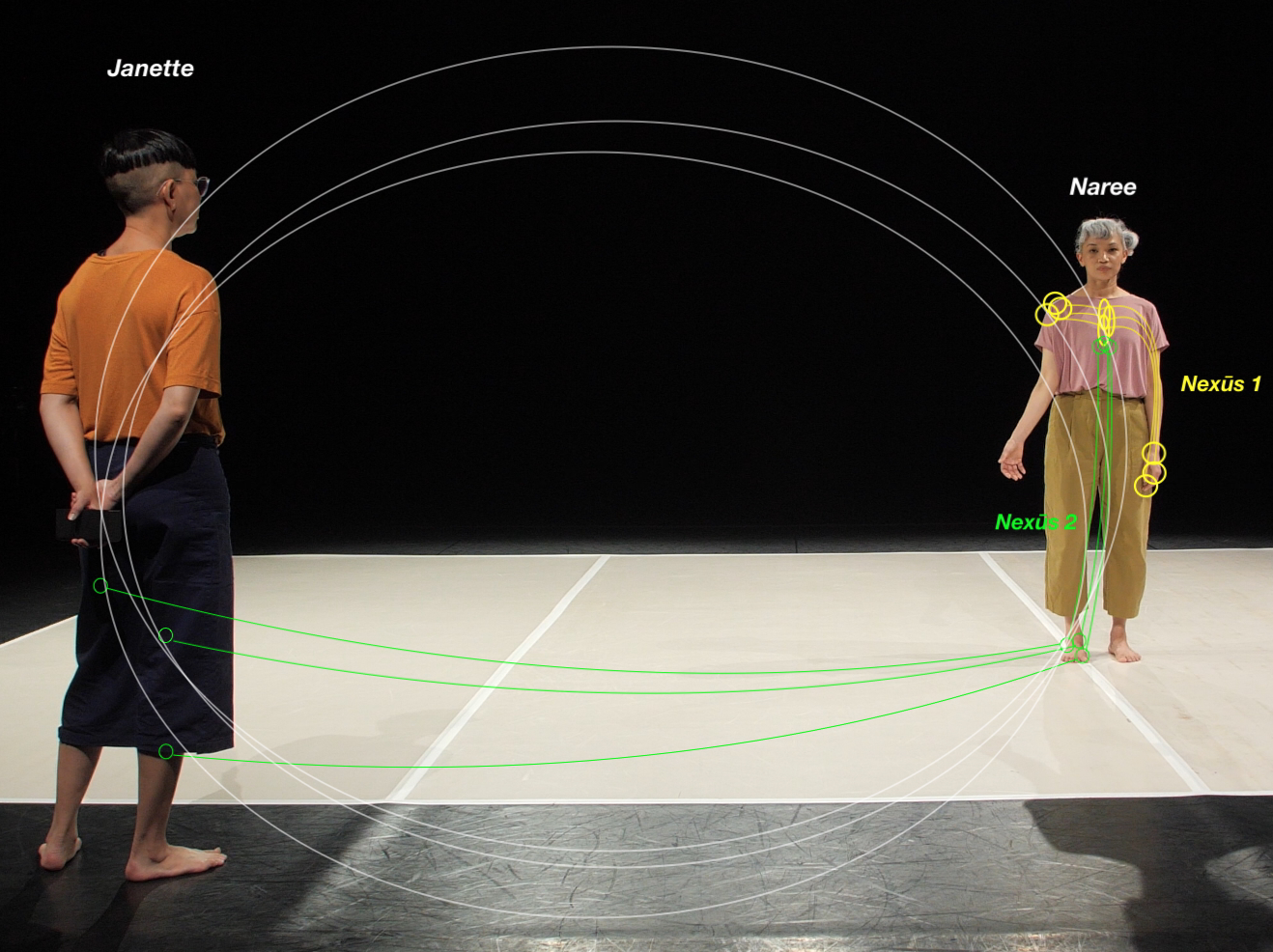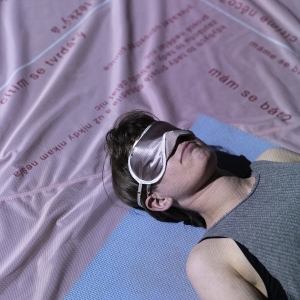
Improvising Time: An investigation into the link between time and intersubjectivity in the performance of solo dance improvisation
Improvising Time is a practice-led research project investigating embodied temporality in the performance of solo dance improvisation. It explores two temporal concepts in Japanese Noh theatre — the sequencing concept of jo-ha-kyū 序破急 and the notion of ma 間, defined as interval — investigating how jo-ha-kyū and ma can be embodied for the temporal organization of solo dance performance when improvised before an audience. Grounded in praxis where theory is imbricated in practice, Noh performance theory is brought into a dynamic interaction with the fundamental theory of time in physics and a phenomenological approach to intersubjectivity. Using a multi-voice dialogic approach as a key methodology, the studio research examines the experience of improvisation from both sides — as improviser and as watcher — in collaboration with solo dance practitioner Janette Hoe. The research shows how, in the act of improvising, an embodied temporality of the improviser is created not only by an awareness of embodied processes but also by the potentiality of unknown improvisational material. Culminating in a major project, Solo Dialogue (2021), the research proposes a new framework of embodied temporality offering an insight into how improvisation can be temporally shaped and organized by prioritizing attentiveness and attunement to diversify performance material and enhance the intersubjective experience between improviser and audience.


